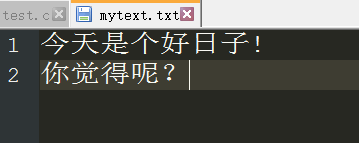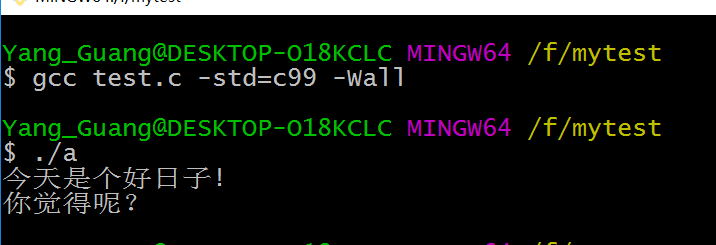其实在我使用最多的文件操作中,还是喜欢格式化IO控制的方式,简单方便易理解。
#include <stdio.h> #include<stdlib.h> int main() { FILE *fp; const char *filename="F:/mytest/mytext.txt"; fp=fopen(filename,"w+"); char *text="今天是个好日子! 你觉得呢?"; if(fp==NULL) { printf("open file failure!"); exit(1); } else { fprintf(fp,"%s",text);//用这个写入中文简直好用 } fclose(fp); return(0); }

看了fprintf函数之后,肯定不能忘了fscanf函数啊:
1 #include <stdio.h> 2 #include<stdlib.h> 3 int main() 4 { 5 FILE *fp; 6 const char *filename="F:/mytest/mytext.txt"; 7 fp=fopen(filename,"w+"); 8 char *text="今天是个好日子! 你觉得呢?"; 9 if(fp==NULL) 10 { 11 printf("open file failure!"); 12 exit(1); 13 } 14 else 15 { 16 fprintf(fp,"%s",text);//用这个写入中文简直好用 17 } 18 fclose(fp); 19 20 21 22 fp=fopen(filename,"r+"); 23 char buff[1024]; 24 if(fp==NULL) 25 { 26 printf("open file failure!"); 27 exit(1); 28 } 29 else 30 { 31 while(!feof(fp))//为什么要循环?因为我要读取多行,只一次的话只能读取一行 32 { 33 fscanf(fp,"%s",buff); 34 printf("%s ",buff); 35 } 36 } 37 fclose(fp); 38 return(0); 39 }
